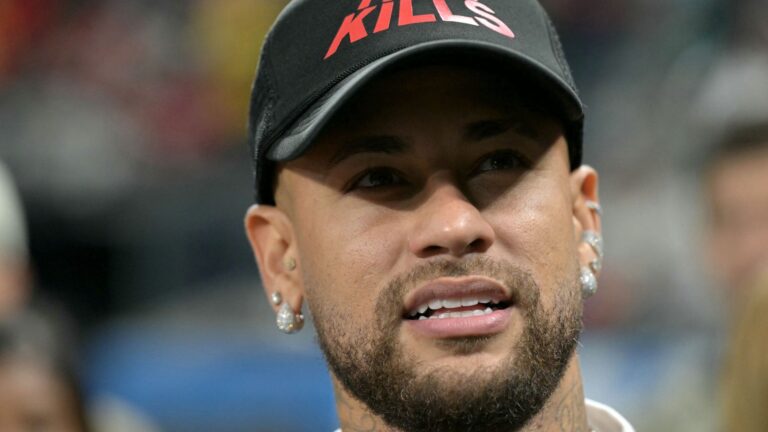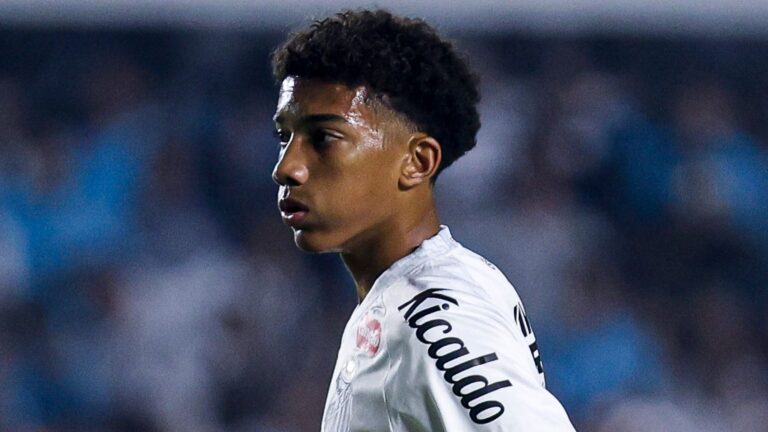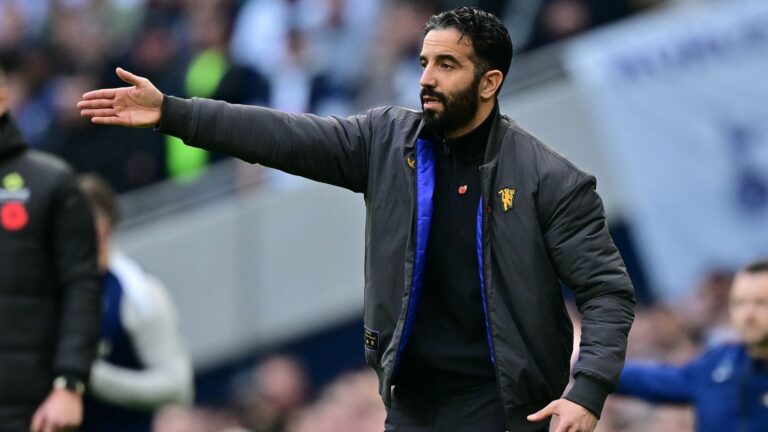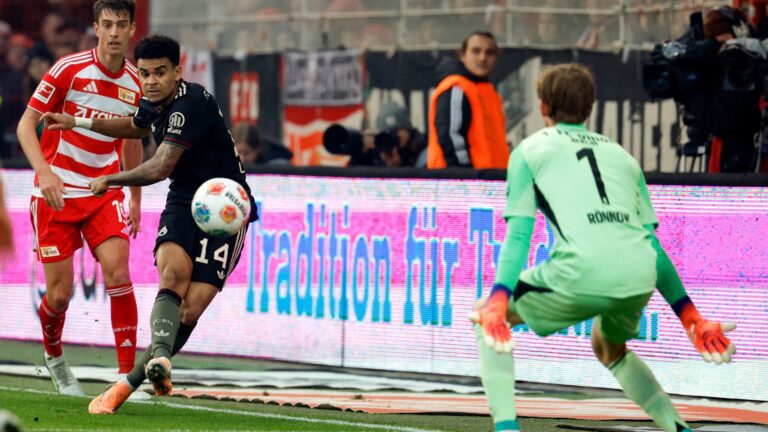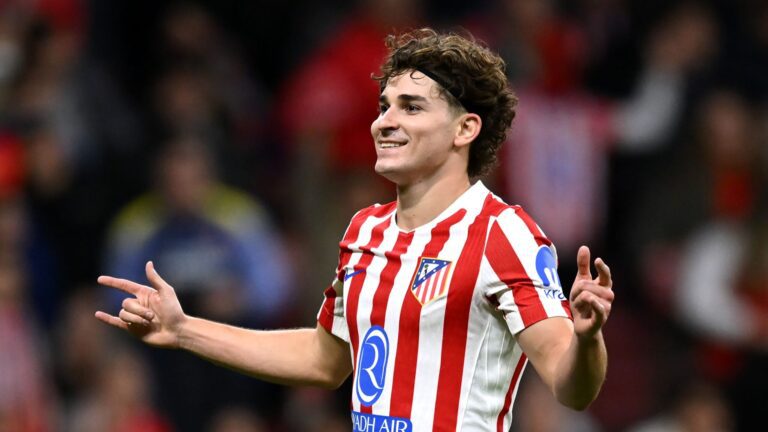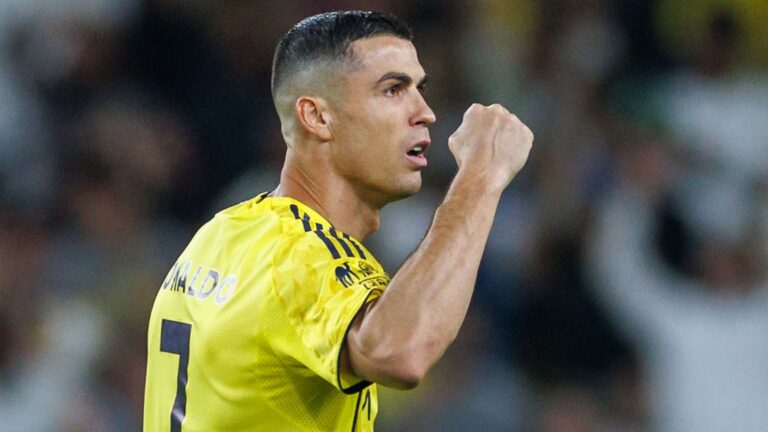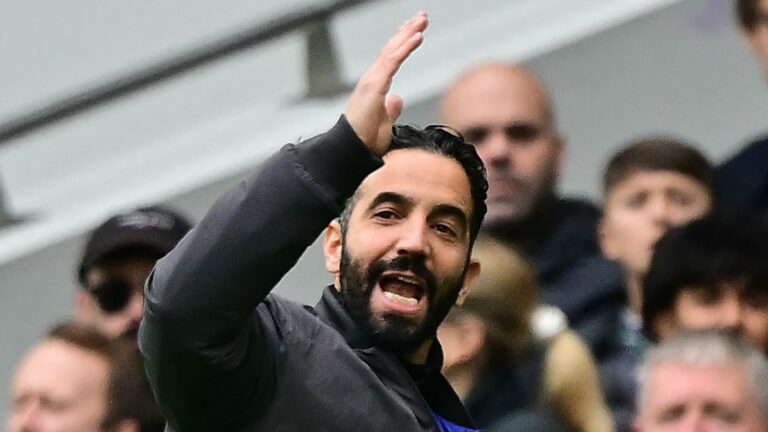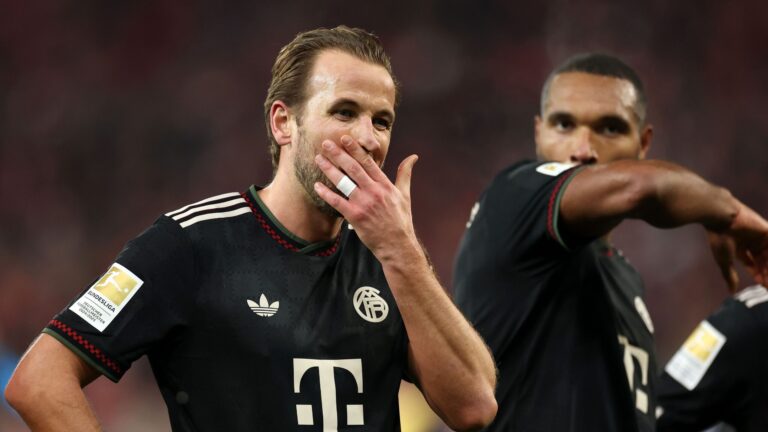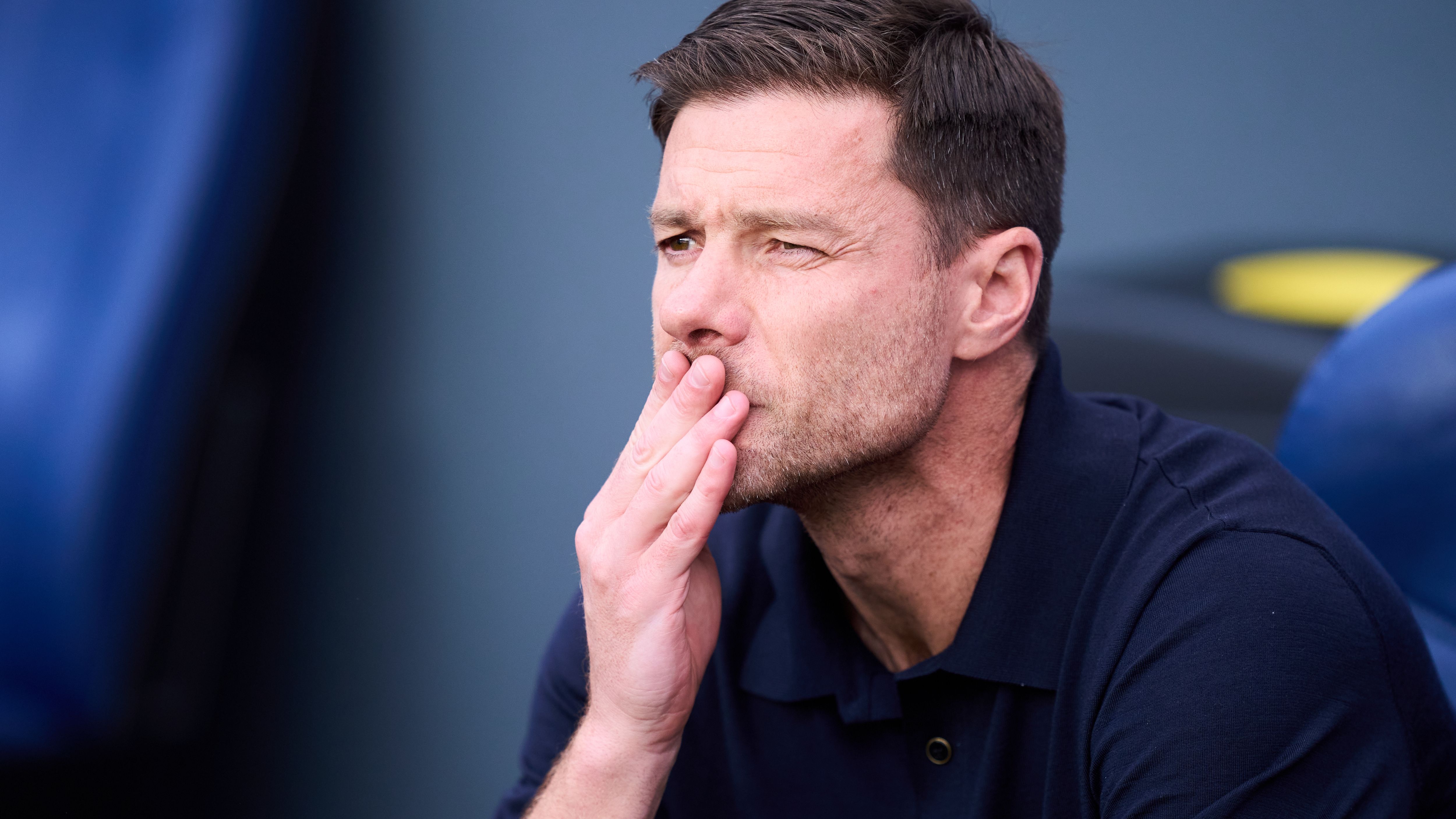
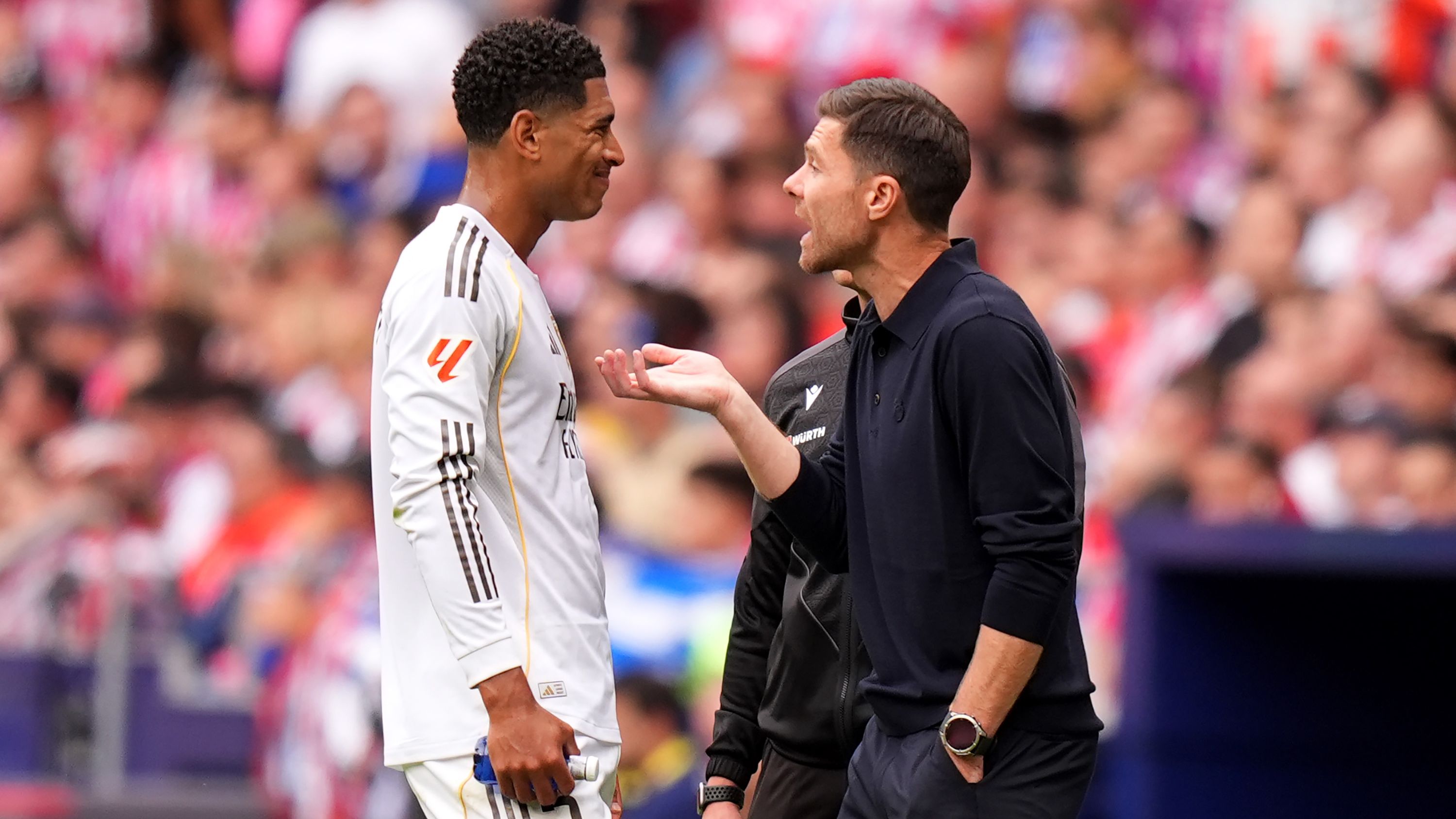
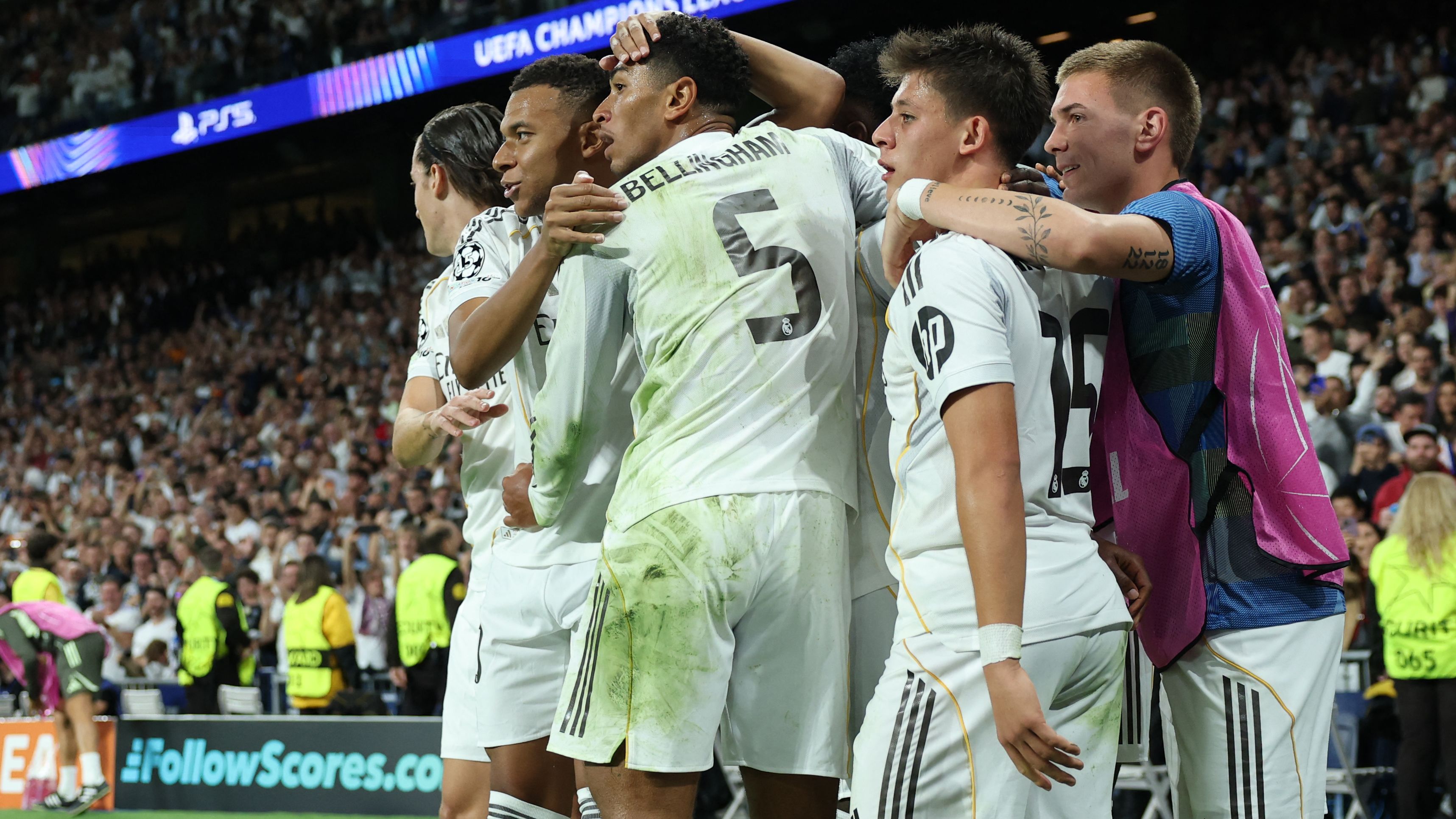
Xabi Alonso’s Battle to Reshape Real Madrid’s Core Amid Rising Pressures
In the high-stakes world of football, where legacy meets modern demands, Xabi Alonso faces intense scrutiny to transform Real Madrid‘s approach and instill a fresh ethos. This pivotal phase highlights the club’s ongoing struggles with mentality and leadership gaps, as recent performances reveal deeper issues beyond mere tactics.
The Deep-Seated Effects of a Crushing Defeat on Real Madrid’s Psyche
The recent 5-2 loss against Atletico didn’t merely bruise egos; it struck at the essence of what defines Los Blancos. Known for upholding rigorous benchmarks, this setback uncovered weaknesses in concentration, resilience, and guidance. Sources from The Athletic described a strained locker room environment post-match, with veteran players challenging newcomers on their commitment and work ethic. Meanwhile, Alonso conducted a private session with his team to dissect not only the on-pitch errors but also the underlying organizational flaws, signaling that club executives now recognize the issue as deeply ingrained rather than surface-level.
Evaluating the Team’s Mixed Recovery Efforts
Following the defeat, Real Madrid has shown some stability with a string of victories in La Liga and the Champions League, yet these successes feel superficial. As fixtures against Barcelona and Liverpool approach, potential vulnerabilities in the squad’s mental toughness might emerge once more. For Alonso, who is still establishing his influence, this series of games could either cement his control or underscore the distance left in his overhaul strategy.
Shifts in Leadership Dynamics Shaping Real Madrid’s Future
Over the past ten years, Real Madrid’s supremacy relied on the steadfast presence of stalwarts like Luka Modric, Toni Kroos, Dani Carvajal, and Nacho Fernandez, who dictated the pace in sessions and competitions. Presently, only Carvajal endures, shouldering the captaincy and leadership duties solo. The exit of figures such as Modric, Kroos, Lucas Vazquez, and Nacho has created an unaddressed void in the team’s structure.
Reflections from Past Coaches on Evolving Squad Composition
Carlo Ancelotti, the previous manager, had foreseen this transition, emphasizing the role of seasoned players as “maintainers of the environment” beyond their playing time. Under Alonso, the squad appears more youthful and dynamic, but also less secure. Players like Federico Valverde demonstrate leadership subtly through actions; Aurelien Tchouameni exhibits control yet remains in his developmental phase; Kylian Mbappe dazzles on the field but disengages off it; and Jude Bellingham is being accelerated into a pivotal role earlier than anticipated in his tenure at Madrid.
Tensions Among Key Players and Contract Negotiations
Vinicius Junior, who embodied the club’s fresh vigor, is now entangled in conflicts regarding his contract extension. Reports indicate he has turned down several offers, arguing for compensation that positions him above Mbappe, Bellingham, and established stars. Experts note that this dispute transcends finances, representing a fight for recognition of his value and prominence within the team.
Alonso’s Drive to Eliminate Old Practices and Build Discipline
The ex-Bayer Leverkusen boss didn’t enter the scene solely to secure wins; his goal was to tackle entrenched “undesirable behaviors,” as highlighted in reports. At Valdebebas, he has enforced strict timeliness, boosted workout rigor, and dismantled barriers between established stars and rookies. A team insider noted, “He’s actively involved in drills alongside the players, rather than staying detached.” His core principle is straightforward: raw skill must be paired with dedication for sustained success.
The Gradual Process of Cultural Overhaul in a Results-Driven Environment
In a setting obsessed with instant triumphs, reshaping the culture is a painstaking endeavor. Observers within Madrid liken Alonso’s task to converting a star-studded lineup into a focused unit. His direct, uncompromising method diverges from Ancelotti’s composed leadership. Nevertheless, remnants of past issues like tardiness, self-importance, and lethargy persist, making Alonso’s mission a blend of mental conditioning and strategic planning to fortify the team’s unity ahead of critical encounters.
Alonso’s Ambitious Plans for Youth Integration Beyond the Senior Squad
Beyond the first team, Alonso is advocating for broader changes, drawing parallels to Jurgen Klopp’s proposals for a German U21 league and pushing for a similar setup in Spain. He argues, “A whole cohort of athletes gets overlooked in the transition from junior to professional ranks.” Highlighting talents such as Nico Paz, Arda Guler, and Alvaro Rodriguez, who possess great ability but lack proper platforms, Alonso insists that organized leagues are vital for early maturity and minimizing the “wasted periods” before players achieve stability.
Anticipating Crucial Matches That Will Test Real Madrid’s Resolve
A tight victory against Juventus offered temporary solace, but the true challenges lie ahead. With El Clasico on the horizon and a journey to Anfield against Liverpool, these contests will determine if Madrid’s emerging ethos is genuine or merely rhetoric. A repeat performance like the Atletico game could reignite concerns over team cohesion and direction.
Navigating Transformation Through Adversity
Historically, Real Madrid has evolved during turbulent times. For Alonso, this represents a defining opportunity. His initiative focuses not just on formations or acquisitions, but on forging a cohesive identity. The question remains: Can he mold a squad that collaborates fiercely, guides effectively, and competes with the poise of Madrid’s legendary eras? The forthcoming weeks will reveal if the coach is crafting a resilient framework to propel Europe’s most exacting club forward.
The Challenges Xabi Alonso Inherits at Real Madrid
Understanding Detrimental Habits in the Team
Xabi Alonso, with his impressive track record at Bayer Leverkusen, is stepping into a high-stakes role at Real Madrid, where longstanding issues could undermine the team’s success. One of the key detrimental habits that fans and analysts have pointed out is the inconsistency in performance, especially in high-pressure matches. For instance, Real Madrid’s recent coaches haven’t emphasized the rigid positional play that Alonso is known for, which might have led to a lack of structure and vulnerability in defense[başvurmak:[başvurmak:https://www.reddit.com/r/realmadrid/comments/1c5ygri/if_xabi_alonso_does_come_do_you_think_real/]. This has resulted in habits like over-reliance on individual stars rather than collective team efforts, which can be risky in the fast-paced world of La Liga and the Champions League.
To address this, Alonso will need to identify and eliminate these habits early. Think about how teams sometimes fall into patterns of complacency after successes – for Real Madrid, this could mean addressing sloppy transitions or poor decision-making under pressure. According to discussions among fans, these issues stem from a culture that hasn’t fully adapted to modern tactical demands, potentially leaving the squad exposed in crucial games. Bullet points on common detrimental habits include:
- Inconsistent defensive structures: Players might not maintain disciplined positions, leading to exploitable gaps.
- Over-dependence on key individuals: Relying too heavily on players like Vinicius Jr. or Jude Bellingham without balanced contributions from the rest.
- Reactive rather than proactive play: A tendency to wait for opponents’ mistakes instead of dictating the game’s flow, which contrasts sharply with Alonso’s proactive style.
By focusing on these areas, Alonso can start to build a more resilient team mentality, ensuring that every player understands their role in the bigger picture.
Growing Concerns Over Team Mentality and Leadership
As Xabi Alonso takes the helm, there’s a growing buzz about Real Madrid’s team mentality and leadership dynamics, which have been under scrutiny for some time. Discussions on fan forums highlight how the club’s mentality has shifted from the dominant eras under managers like Zidane, with concerns that the team lacks the mental fortitude to handle setbacks in elite competitions[başvurmak:[başvurmak:https://www.reddit.com/r/realmadrid/comments/1bey4vy/is_xabi_alonso_the_future/]. Leadership on the pitch has been another pain point, with reports suggesting that without strong guidance, players might not gel as a unit during tough matches.
This pressure to cultivate a new culture means Alonso must foster a mindset of consistency and accountability. For example, experts note that his experience at Leverkusen involved instilling a winning ethos, which could translate to Madrid by emphasizing preparation and resilience. Key concerns include:
- Mental fatigue in long seasons: Teams often struggle with maintaining focus throughout a demanding schedule, leading to dips in performance.
- Lack of unified leadership: Without a clear voice, cliques can form, affecting overall team cohesion.
- Adapting to modern football demands: As the game evolves, old habits like individualistic play need to be swapped for collaborative strategies to stay competitive in SEO-friendly terms like “Real Madrid team mentality overhaul.”
Alonso’s challenge is to lead by example, drawing from his playing days at Madrid to rebuild trust and motivation among the squad.
Strategies for Cultivating a New Culture
Implementing Positional Play and Guardiolismo
One of Alonso’s most talked-about strengths is his implementation of positional play, often linked to “Guardiolismo,” which emphasizes precise positioning and fluid movement – a style he’s honed at Bayer Leverkusen. At Real Madrid, this could mean transforming the team’s approach from a more traditional, counter-attacking setup to a possession-based system that minimizes detrimental habits like turnovers and disorganization[başvurmak:[başvurmak:https://www.reddit.com/r/realmadrid/comments/1c5ygri/if_xabi_alonso_does_come_do_you_think_real/]. By incorporating this, Alonso can cultivate a culture where every pass and movement has purpose, reducing errors and boosting confidence.
To make this transition engaging, consider how positional play involves:
- Training drills focused on spatial awareness: Helping players understand how to occupy key areas without overlapping.
- Tactical sessions on fluidity: Encouraging seamless rotations that keep opponents guessing.
- Integration of data analytics: Using SEO-optimized tools to track player positioning and improve decision-making in real time.
This strategy not only addresses team mentality but also enhances leadership by empowering players to take ownership of their roles.
Building Consistency and Leadership Through High-Stakes Preparation
Alonso faces the task of building consistency, a theme that’s emerged in conversations about his potential at top clubs. Experts suggest that without consistent results, like qualifying for the Champions League or winning domestic titles, leadership concerns could intensify[başvurmak:[başvurmak:https://www.reddit.com/r/realmadrid/comments/1bey4vy/is_xabi_alonso_the_future/]. To cultivate a new culture, he might introduce leadership workshops or team-building exercises that promote a growth mindset.
Specific steps could include:
- Mentorship programs: Pairing experienced players with younger ones to foster accountability and shared goals.
- Performance reviews with a focus on mentality: Regular assessments that highlight areas for improvement in resilience and focus.
- Incorporating motivational tactics: Drawing from Alonso’s own career to inspire a “win-now” culture while planning for long-term success.
In discussions about up-and-coming managers, there’s emphasis on avoiding risks with unproven strategies, so Alonso’s approach might blend his tactical innovations with Madrid’s storied history[başvurmak:[başvurmak:https://www.reddit.com/r/LiverpoolFC/comments/1abxy5l/good_video_explaining_xabi_alonsos_tactics_and/]. This could involve adapting his tactics to fit the squad’s strengths, ensuring that the new culture is sustainable and engaging for fans following keywords like “Xabi Alonso leadership at Real Madrid.”
The Pressure on Xabi Alonso
Expectations from Fans and the Board
The pressure on Alonso is immense, as Real Madrid’s board and fans expect quick results in eliminating detrimental habits and reshaping team mentality. With the current date in mind, 2025-10-23, the club is likely eyeing immediate success in La Liga and Europe, where leadership failings could cost trophies. Analysts point out that Alonso must balance innovation with results, as failure to adapt could lead to fan unrest.
To navigate this, he might:
- Set clear benchmarks: Like achieving a certain number of clean sheets to measure defensive improvements.
- Engage with the community: Using fan feedback to refine strategies and build loyalty.
- Leverage his legacy: As a former player, Alonso can use his insider knowledge to quickly gain buy-in from the squad.
Potential Outcomes and Risks
Under an H4 subheading, let’s explore the risks involved. If Alonso succeeds in cultivating this new culture, Real Madrid could see a revival in team mentality, with improved leadership leading to better on-field results. However, risks include resistance from players accustomed to old ways, potentially causing short-term setbacks. For instance, blending positional play might initially disrupt team dynamics, but with patience, it could elevate Madrid’s status in global football searches related to “cultivating new culture at Real Madrid.”
By addressing these pressures head-on, Alonso has the opportunity to leave a lasting impact, turning concerns into strengths for a more unified and mentally tough team.


